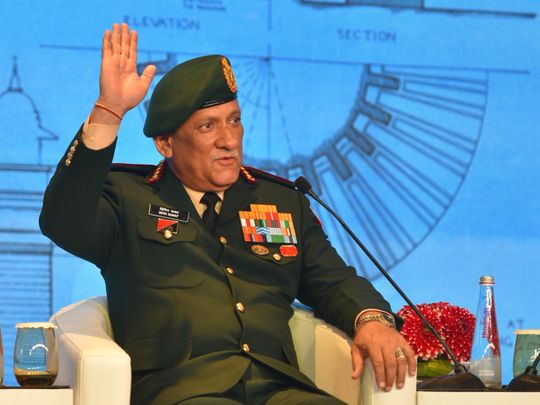
With the appointment of General Bipin Rawat as India’s first Chief of Defence Staff (CDS), the country’s strategic community has finally realised its long-standing demand. This decision in the making for long has been hailed as a leap for national security and welcomed by many.
But is it a leap of faith? There is a long history behind the reasons for putting this decision on ice for long, some dating back to the country’s early years of Independence and some more recent. Read the Indian Express story of 2012 ‘The January Night Raisina Hill Was Spooked’ and according to a former Army Chief, the ‘fear of coup’ prevented the CDS’ appointment earlier.
So will this logically lead to the CDS becoming the final authority on theatre command operations? What happens now to the National Security Adviser (NSA)? Would some of the current advisorial functions of the NSA be transferred to the CDS?
Ever since the news on the appointment of the CDS, a series of questions has been raised on the role of this high office: what it is and what it is not. The CDS will be an adviser as well as a chief but with no operational command role. He will however head the Department of Military Affairs directly under the Defence Minister. A ‘first among equals’ with a specific mandate to engender tri-service operations.
So will this logically lead to the CDS becoming the final authority on theatre command operations? What happens now to the National Security Adviser (NSA)? Would some of the current advisorial functions of the NSA be transferred to the CDS? The NSA outranks him (the CDS has been made a cabinet secretary equivalent while the NSA has a cabinet minister’s rank).
Next, the three Service Chiefs are on par with the CDS. How will this play out when it comes to ‘Services parochialism’? Lastly, if the path to ‘jointmanship’ is indeed the central aim of this whole exercise, namely to evolve in real time, a common strategy to wage war by conducting integrated military operations (air, sea, land, nuclear, cyber), will this come about given the rules of business laid out?
Protocol and hierarchy
Strange as it may seem, though there are no opponents to the concept of jointmanship, yet every step taken to climb this mountain is fiercely resisted. A paradox perhaps, though on closer scrutiny not surprising, given human frailties. Don’t forget we are talking of men who have oversized egos and are schooled from an early stage in their career of the importance of protocol and hierarchy.
The Services also accord immense importance to the concept of ‘Regimental affiliations’ and undoubtedly regimental spirit acts as a force multiplier at battalion level but becomes counterproductive at higher levels.
To all this is the added fact that between the three Services the world over (Army, Navy and the Air Force) there is undoubted rivalry and in India, the Army has enjoyed primacy since independence.
Yet, despite these daunting challenges there have been success stories on joint command. The most obvious case is that of Dwight Eisenhower, whom was appointed Supreme commander of the Allied Expeditionary Force to execute Operation Overlord.
He commanded the largest ambitious force in history (of over 150,000 troops) and the Hollywood movie D-Day captures the burdensome responsibility on Eisenhower’s shoulders, namely whether to go into action or to abort, given the far from ideal weather conditions on that distant day, June 6 1944.
Jointmanship
The lives of over 150,000 soldiers depended on Eisenhower making the right call. It was indeed the finest hour for ‘jointmanship’ and the case for CDS needs no further validation. Yet, a closer reading reveals that much of the failures of that day were papered over. There were major differences between the key players and Eisenhower has had his detractors who have continued to pillar him.
Field Marshal Montgomery who worked under him condescendingly said of him “Nice chap. No general”. For a fuller account, read ‘Eisenhower under Fire, 1944-45’ by Jerry D. Morelock. Notwithstanding these carping comments, suffice it to be said that Eisenhower’s personality was ideally suited for the job; amiable by nature and lacking in false ego, he was the consummate team player.
Much of this recounting is to say how vitally important it is to choose the right man for the CDS’ job. The challenges ahead for General Rawat are formidable. And he has not had a great start: his unwanted comments on the much debated ‘Citizenship Act’ (CA) do not inspire confidence.
The newly appointed Army Chief, Manoj Mukund Naravane, has actually distanced himself from the CDS on this matter. And if being a consummate team player is a singular quality needed in this high office, then this is conspicuously absent in General Rawat. As a team player, he indeed needed to carry the entire military with him before speaking out.
This is indeed a case of the wrong man for this high office. Much was expected of this new appointment, alas, a leap too far!
— Ravi Menon is a Dubai-based writer, working on a series of essays on India and on a public service initiative called India Talks.








